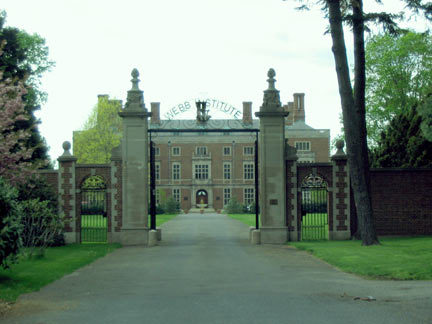Introduction
Welcome to Webb Institute, one of the most unusual colleges in the world, but also one of the best. Let’s set some things straight from the start:
- Webb Institute was founded in 1889 by millionaire William H. Webb, one of the preeminent shipbuilders of the mid-nineteenth century, the era of the clipper ships.
- The purpose of the school is to advance the art and science of shipbuilding in the United States by training promising young people for careers in that field; thus, Webb confers only one undergraduate degree: a Bachelor of Science in Naval Architecture and Marine Engineering.
- The Webb program is a full, four-year, intense engineering education.
- All students receive a full-tuition scholarship for all four years. (Yes, it’s an almost-free education; the only costs are room, board, and books.)
- The Webb campus is a mansion on Long Island Sound.
- Only about eighty students attend in total, with a maximum of twenty-six in a class.
- All Webb students have two months of practical work experience every winter, for a total of at least eight months experience upon graduation.
- All Webb sophomores sail on ships for their winter work term, most overseas to the Caribbean, Europe, and Asia.
- Webb graduates are highly regarded in the maritime industry and eagerly recruited.
- Webb’s placement rate is one hundred percent.
- Graduates are regularly accepted into master’s programs at schools with prestigious graduate programs such as MIT and Stanford.
- Webb is not a military school; it is a completely private institution, focusing primarily on the needs of the commercial shipbuilding market; therefore, students have no obligations to the school on goverment upon graduation.
- The Webb degree is readily transferable to a wide range of other engineering disciplines, not only shipbuilding.
- Webb is fully accredited.
To sum up, Webb Institute is one of the best (if not the best) engineering schools in the country, it’s basically free, and it happens to focus on ships. If you have never heard of Webb, don’t worry—many of the students presently attending didn’t know about it either until their senior year in high school, when they received an introductory brochure in the mail! But don’t let Webb’s small size and apparent obscurity fool you: Webb may be one of the best-kept secrets in academia, but certainly not in the maritime industry. If you are interested in getting a great job right out of college, with little debt, and you are smart and willing to work hard to learn about engineering in shipbuilding, then read on.
Webb Institute is a rare school; and like many rare things, it is invaluable, if you can recognize and appreciate it. Admittedly, Webb is not for everybody. It is a hard, taxing, and focused school. It’s like being in the Marine Corps for the mind. But the status and opportunity that come with a degree from Webb certainly make it all worthwhile. A Webb education is a topnotch education, certainly better for engineering than any Ivy League or technical school— and the price just can’t be beat. So, if you have the interest in ships, the smarts, and the stamina necessary to make it through Webb, by all means, DO IT! It may very well be the most accelerating four years your career will ever see.


